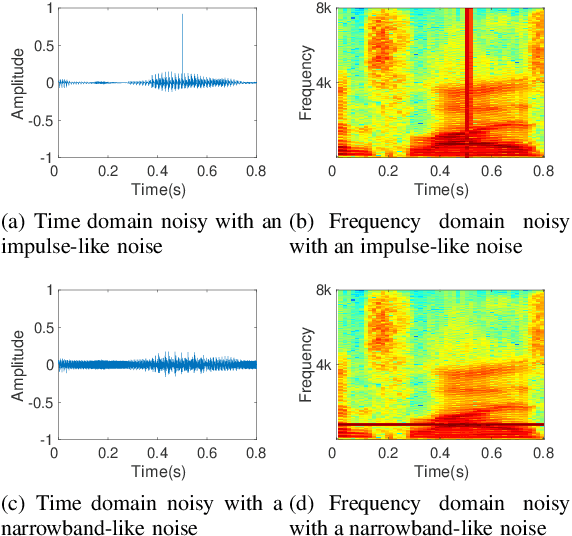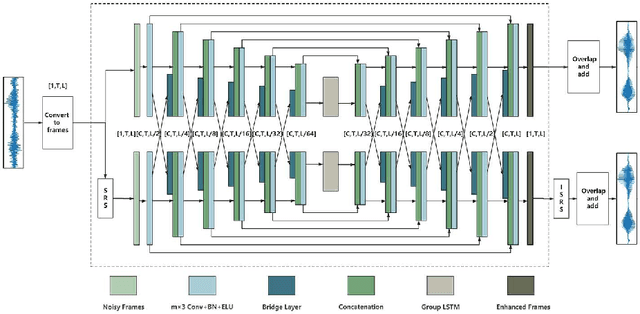Kanghao Zhang
Local-global speaker representation for target speaker extraction
Oct 28, 2022



Abstract:Target speaker extraction is to extract the target speaker's voice from a mixture of signals according to the given enrollment utterance. The target speaker's enrollment utterance is also called as anchor speech. The effective utilization of anchor speech is crucial for speaker extraction. In this study, we propose a new system to exploit speaker information from anchor speech fully. Unlike models that use only local or global features of the anchor, the proposed method extracts speaker information on global and local levels and feeds the features into a speech separation network. Our approach benefits from the complementary advantages of both global and local features, and the performance of speaker extraction is improved. We verified the feasibility of this local-global representation (LGR) method using multiple speaker extraction models. Systematic experiments were conducted on the open-source dataset Libri-2talker, and the results showed that the proposed method significantly outperformed the baseline models.
DBNet: A Dual-branch Network Architecture Processing on Spectrum and Waveform for Single-channel Speech Enhancement
May 06, 2021



Abstract:In real acoustic environment, speech enhancement is an arduous task to improve the quality and intelligibility of speech interfered by background noise and reverberation. Over the past years, deep learning has shown great potential on speech enhancement. In this paper, we propose a novel real-time framework called DBNet which is a dual-branch structure with alternate interconnection. Each branch incorporates an encoder-decoder architecture with skip connections. The two branches are responsible for spectrum and waveform modeling, respectively. A bridge layer is adopted to exchange information between the two branches. Systematic evaluation and comparison show that the proposed system substantially outperforms related algorithms under very challenging environments. And in INTERSPEECH 2021 Deep Noise Suppression (DNS) challenge, the proposed system ranks the top 8 in real-time track 1 in terms of the Mean Opinion Score (MOS) of the ITU-T P.835 framework.
 Add to Chrome
Add to Chrome Add to Firefox
Add to Firefox Add to Edge
Add to Edge